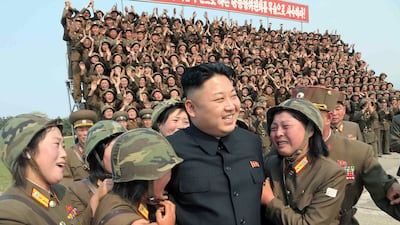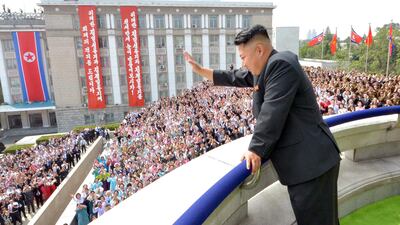For weeks, the world's eyes have been on the Ukraine-Russia border, where there are fears Europe might be perilously close to war. The situation is no less fraught today. After a month and a half of making no direct comments on the matter, Russian President Vladimir Putin on Tuesday accused the West of trying lure his country into war by ignoring its diplomatic and security concerns.
There are fissures within the EU and Nato powers over how to deal with the issue, and a looming severe continental energy crisis is set to be aggravated by the tensions. It is important to remember that Russia and Ukraine have technically been at war since 2014, when Russian separatist forces annexed Crimea, but today's fears are that even the smallest triggers might produce something far deadlier.
It is difficult not to draw grim parallels from history. While Europe has been largely conflict-free in recent times, part of the motivation for creating mechanisms for multilateral co-operation in the latter half of the 20th century, embodied most acutely in the EU and Nato, was to put a stop to the long history of fighting on the continent. The First and Second World Wars began in Europe, and killed 100 million people combined. They were followed by half a century of "cold war" between the West and the USSR, which nearly took the world to nuclear annihilation.
It is also important to remember that these conflicts involved the rest of the world. And that is where today's parallels are even more concerning, because it is not just in Eastern Europe that inter-state tensions are running high enough to raise alarm bells.
This week, North Korea successfully launched its most powerful missile in five years. There are fears that as great powers remain preoccupied by Ukraine-Russia tensions, not enough attention will be paid to that escalation; after all, these conditions are very similar to ones that led to one of the most intense geopolitical episodes of the Trump presidency, which saw a bizarre but highly confrontational war of words between the former US president and North Korean leader Kim Jong-un over Twitter.
At the same time, North Korea appears to thrive on attention. That is a challenge for diplomats. Yesterday, the US called for an emergency meeting at the UN Security Council over North Korea's latest launch — it could hardly be expected not to.
For his part, US President Joe Biden has struck a balance between acknowledging the challenges facing North Korea while also holding it accountable for perceived aggressive actions. It represents an all too rarely consistent American geopolitical approach over two starkly different presidencies. That is why, at least in this arena, diplomacy still has much to give.
With much of the back channels and unspoken norms of the Cold War era now gone, it is time that those involved in Ukraine-Russia tensions similarly use diplomacy not as a facade, but as the means to step back from the brink. It is not just the best option the world has, but the only one if another war, with all its capacity to hurt those two countries and the rest of the globe, is to be avoided.




















